When considering the best time to take mushroom supplements, it largely depends on the type of mushroom and the intended benefit. For instance, Lion's Mane, known for its cognitive boosting effects, may be best taken in the morning to align with the daily rhythm of cognitive demands.
Reishi, on the other hand, known for promoting calmness and aiding sleep, might be more beneficial when taken in the evening. Finally, Chaga and Cordyceps have energizing qualities, making them perfect for your morning routine.
However, it's important to note that consistency is key for maximum benefits, regardless of timing. Moreover, always consult a healthcare professional or a nutritionist to establish the optimal regimen tailored to your needs. Also, remember that individual responses may vary based on diet, lifestyle, and overall health.
Consuming mushroom extracts can help you improve your overall well-being, and taking them at the right time is crucial. This comprehensive guide lets you know the best time to take mushroom supplements for maximum health benefits.
Understanding Mushroom Supplements
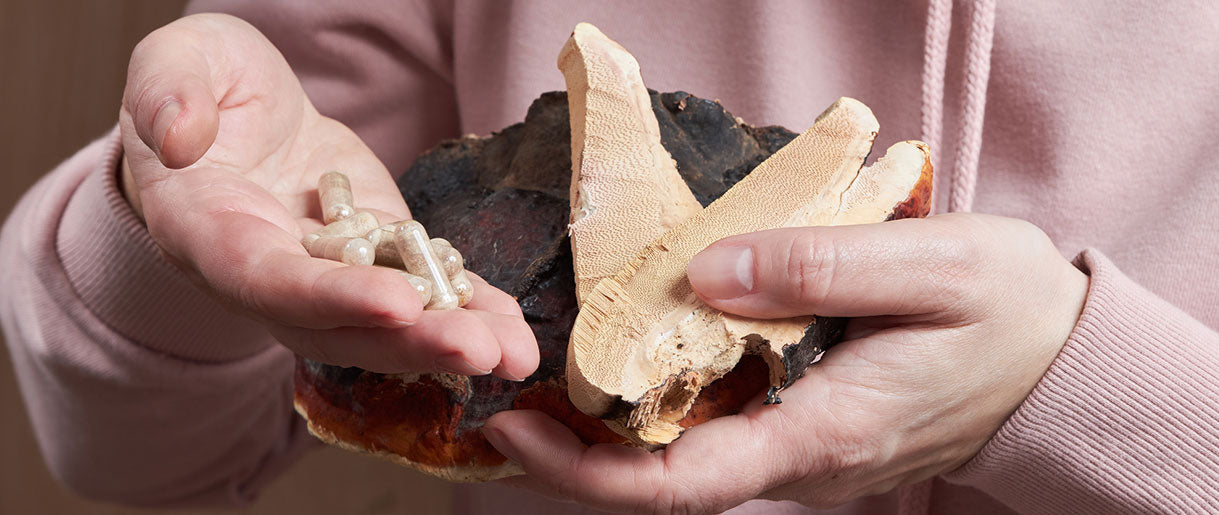
The Rich History of Medicinal Mushrooms
The exploration of medicinal mushrooms can be traced back thousands of years, particularly in regions where Eastern medicine thrives. From the ancient Chinese dynasties to the tribal societies of Siberia, these bounties of nature have long been revered for their health benefits.
Exploring the Diversity of Mushroom Supplements
Among the array of medicinal mushrooms, Lion's mane medicinal mushroom, for instance, is popularly known for its neuroprotective capabilities. On the other hand, Reishi is an adaptogen mushroom known for its stress-relieving properties. Each variety of mushrooms carries its unique blend of beneficial nutrients, contributing to the broad range of health benefits that regular consumption might offer.
Production and Forms of Mushroom Supplements
Mushroom supplements usually derive from the mushroom extract, obtained predominantly from the fruiting body of the fungus. The extract contains bioactive compounds, including polysaccharides, triterpenes, and beta-glucans. The extraction process ensures that these compounds are preserved and concentrated, giving us maximum health benefits.
These mushroom extracts are then processed into various forms to accommodate consumer preferences. The most common forms include capsules, powders, and liquids. Capsules are often favored for their convenience and precise dosing, while powders provide versatility, as they can be mixed into smoothies, coffee, or food recipes. Liquid forms, such as tinctures, offer easy absorption.
Choosing a Good Mushroom Supplement
When choosing a good mushroom supplement, verifying that it contains extracts from the fruiting body rather than mycelium is crucial, as the former typically contains a higher concentration of beneficial compounds. Also, the supplement should preferably be organic, free from contaminants, and rigorously tested for safety and potency.
By gaining a deeper understanding of these mushroom supplements, we can make informed choices about their inclusion in our health regimen, optimizing their potential benefits.
Interesting Read: Learn what to look for when buying Lion's mane supplements.
Best Time Of Day To Take Mushroom Supplements
Pre-Bedtime Reishi Mushrooms For Better Sleep
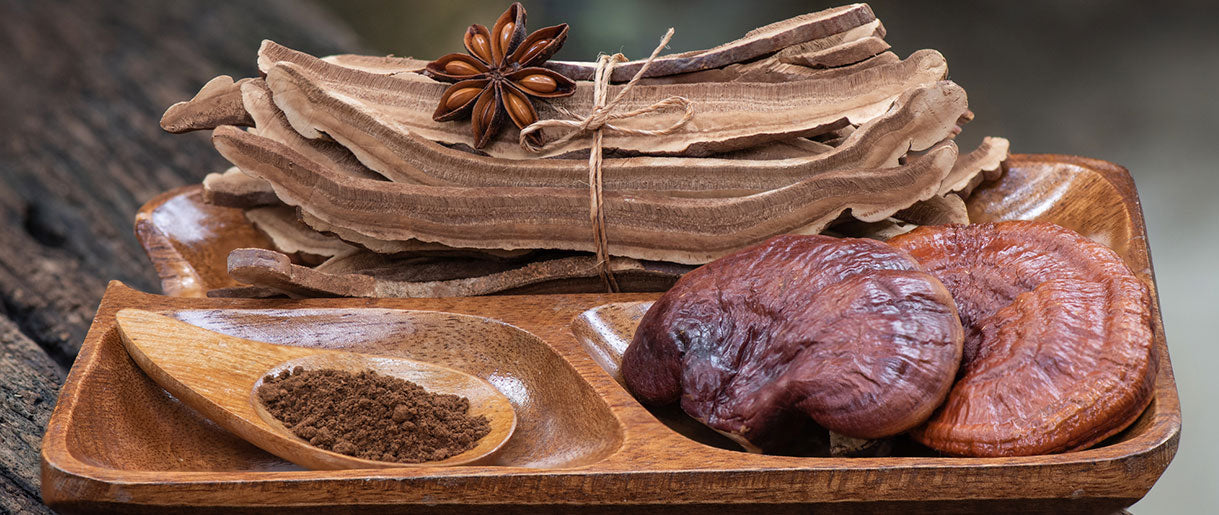
Ganoderma lucidum, or Reishi mushroom (also known as the "queen of calm"), is highly prized for improving sleep quality and reducing feelings of physical and mental stress. The triterpenes and beta-glucans in Reishi powdered mushroom extracts have been shown in research studies(1) to have the potential to calm the nervous system, promoting a soothing quality that can help reduce stress and open the door to deep sleep.
Reishi powder is also the superhero of light sleep or non-REM (rapid eye movement) sleep. In a study(2), Reishi mushroom extract substantially increased non-REM sleep and total sleep time. Therefore, Reishi functional mushrooms are best savored in an evening ritual that helps you unwind before bed, improving sleep quality.
Interesting Read: See our detailed guide on when to take Reishi mushrooms.
A Morning Dose Of Lion's Mane Mushroom For More Focus

Lion's mane supplements are best taken in the morning to benefit brain focus and concentration throughout the day.
Lion's mane mushroom powder boosts cognitive function and is frequently referred to as nature's nutrient for the neurons. The fruiting body of Lion's mane mushroom—used to produce the mane powder—contains Hericenones and Erinacines. These two active components promote brain health by enhancing nerve growth factor (NGF)(3).
The nerve growth factors support brain and nerve health, promote brain cell growth, improve brain plasticity, and fight brain fog. NGF also enhances creativity, mood, concentration, and focus, fighting depression and anxiety.
Unconfirmed reports show that Lion's mane mushroom powders can improve sleep, especially REM sleep. However, although taking Lion's mane mushrooms before bed is recommended to maximize their sleep-supporting effects, it is unnecessary. Instead, consume Lion's Mane supplements in the morning for maximum mood- and brain-improving benefits.
Interesting Read: See our guide on the best time to take Lion's Mane.
Take Cordyceps Mushroom In The Morning For An Energy Boost
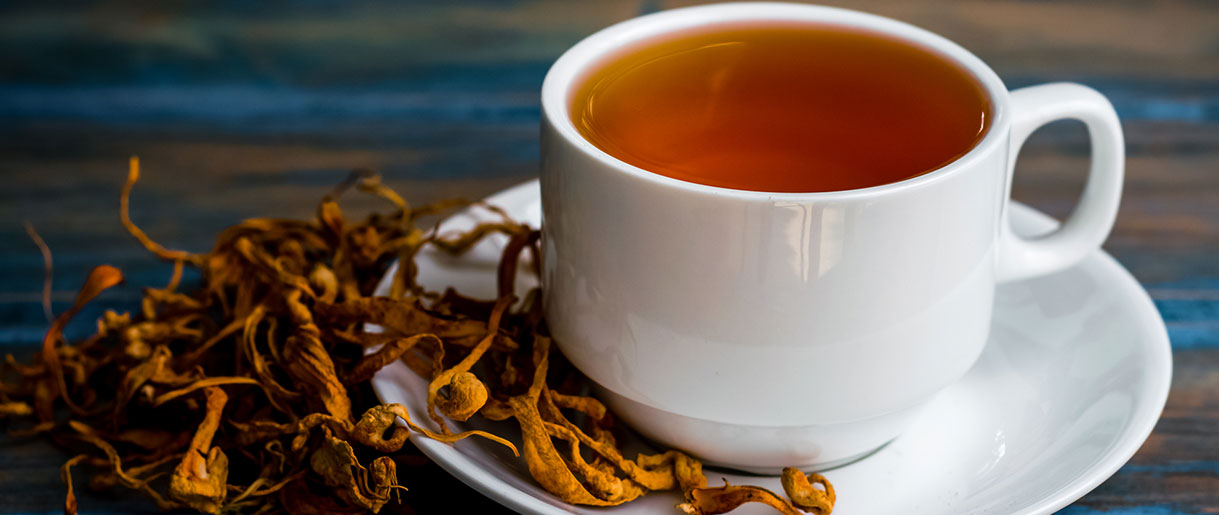
Consuming Cordyceps in the morning will give your day an energizing boost. For this reason, Cordyceps has earned the name "deep energy awakener," giving you an energetic feeling after a restful sleep.
Cordyceps, a traditional Chinese medicine, has long been prized for creating adaptive energy reserves. Research shows that(4) Cordyceps supports the production of mitochondrial Adenosine triphosphate (ATP), the energy source for use and storage at the cellular level. Ensuring you have enough ATP in circulation at all times, the cordyceps supplement gives your muscles and mind the energy to achieve your daily goals.
Interesting Read: Learn more about the best time to take cordyceps.
Morning Turkey Tail For Immunity And Protection Against Diseases
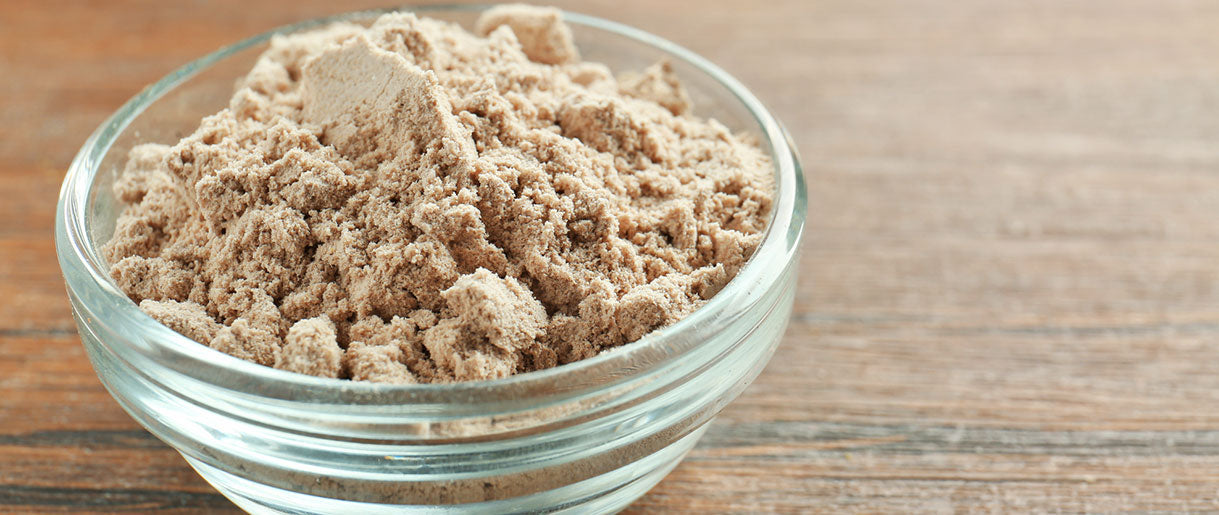
Trametes versicolor, or Turkey tail, is among the best morning mushrooms due to its potent immune-supporting properties and prebiotic status.
Human studies(5) have shown that Turkey tail mushroom has bioactive compounds that stimulate the immune system, helping your body defend against viruses, bacteria, and other pathogens. Our bodies come across the biggest number of pathogens during the day, meaning using turkey tail products in the morning to boost your immunity ensures your body can fight any disease-causing organisms you come across.
Turkey Tail also has an impressive array(6) of antioxidants with anti-inflammatory responses and a well-known prebiotic supporting a healthy microbiome. The gut plays a crucial role in our immunity, meaning making Turkey tail part of your morning diet ensures optimal immune system support.
Interesting Read: See how turkey tail mushroom boosts gut health.
Raise Your Energy Levels With Morning Chaga Mushroom
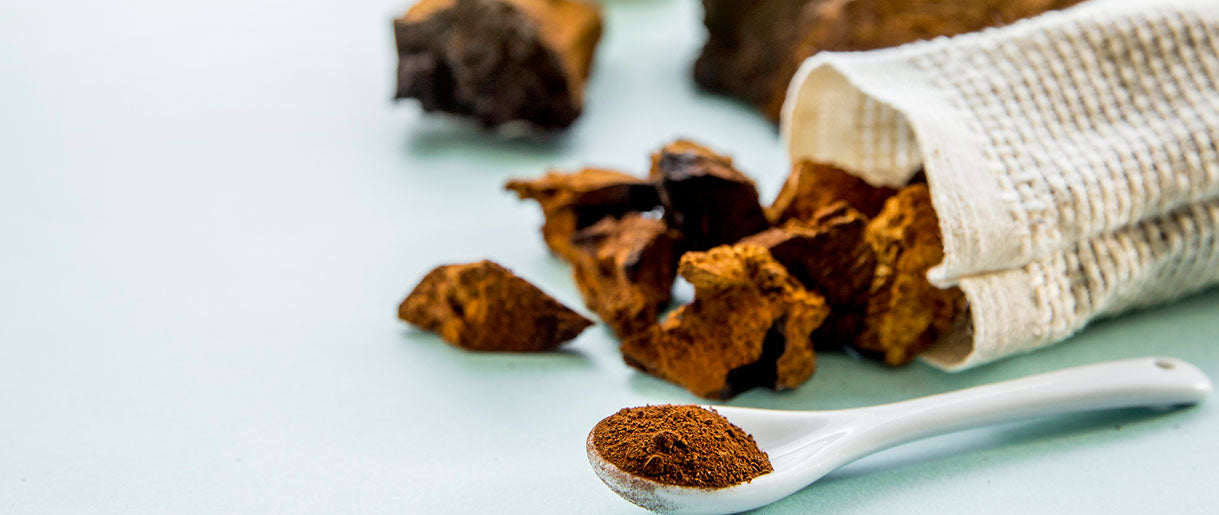
Inonotus obliquus or Chaga mushrooms make an excellent morning recharger, as it is rich in antioxidants that can fuel the day. Chaga is rich in the anti-aging enzyme superoxide dismutase (SOD). Due to its ability to neutralize free radicals and thereby prevent oxidative damage to cells and tissues, SOD is crucial for energy production and longevity.
Chaga provides a natural source of energy without caffeine. It is often consumed in the morning as a substitute for coffee to increase energy levels without the potential adverse effects associated with coffee, such as anxiety and the midday caffeine slump.
Interesting Read: Does Chaga tea have caffeine?
Consider Interactions With Other Medications
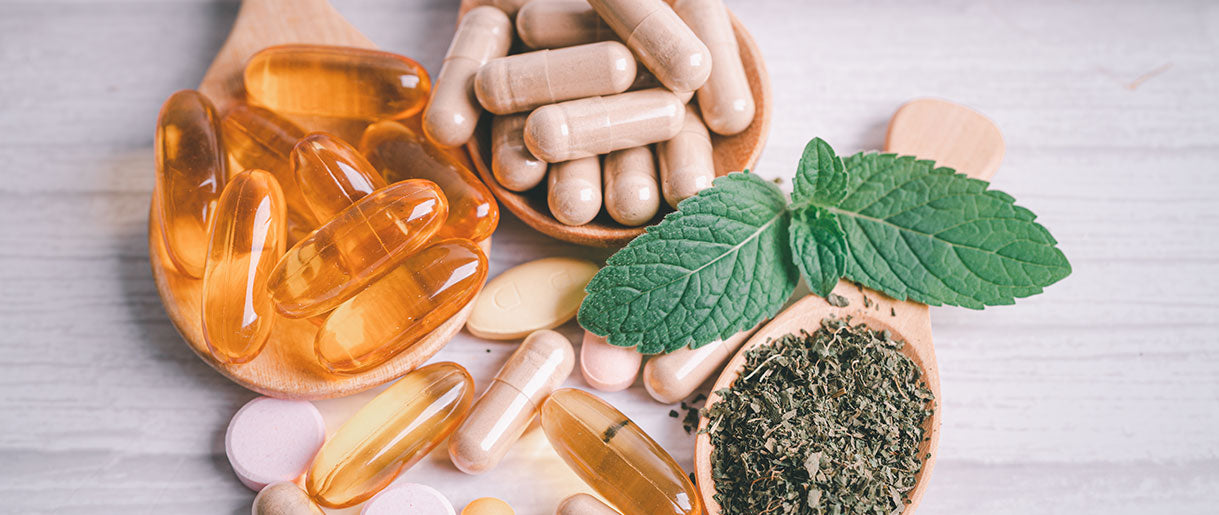
Medicinal fungi, such as Reishi, shiitake, Lion's mane, or maitake mushrooms, contain bioactive compounds that may stimulate the immune system, affect blood sugar levels, or have antiplatelet or anticoagulant effects. As a result, taking these supplements alongside immunosuppressant drugs, blood-thinning medications, or diabetes medications may interfere with their effectiveness or cause unwanted side effects.
Interesting Read: Learn about Lion's mane drug interactions.
However, if you take other medications, you do not have to miss out on polysaccharides, fiber, minerals, vitamins, and other nutrients in medicinal mushroom species. Instead, follow these steps to structure the best time to take your mushroom capsules or supplements:
Talk To Your Healthcare Provider
Before taking mushroom extracts, talking to your healthcare provider is always a good idea, especially if you're taking other medications. They can advise you on potential interactions and the best way to take your mushroom supplements.
Consider The Type Of Medication You're Taking
Different medications can interact with supplements differently. Therefore, it's essential to consider the type of medication you're taking when determining the best time to take your mushroom supplements.
Space Out Your Supplements And Medications
Space out the time you take your supplements and medications to reduce the risk of interactions. This may involve taking your supplements at a different time of day than your medications or several hours apart.
Monitor Your Body's Response
As you start taking mushroom supplements, pay attention to how your body responds. If you notice any unusual symptoms or side effects, it's essential to stop taking the supplement and talk to your healthcare provider.
FAQs About The Best Time To Take Mushroom Supplements
Should You Take Mushroom Supplements On An Empty Stomach?
Whether or not you should take mushroom supplements on an empty stomach depends on the specific supplement and the intended use. Some mushroom supplements, such as cordyceps, are believed to be more effective when taken on an empty stomach, as food can interfere with their absorption. Other mushroom supplements, such as Reishi or Chaga, may be better tolerated when taken with food or a meal, as they can be more challenging to digest.
In some cases, taking mushroom supplements on an empty stomach may cause gastrointestinal discomfort or other side effects, such as nausea or heartburn. If this occurs, taking the supplement with a small amount of food may help reduce these symptoms.
Interesting Read: See whether to take Lion's mane with or without food.
How Long Does It Take For Mushroom Supplements To Work?
The time it takes for mushroom supplements to work can vary depending on several factors, including the specific supplement, the dosage, the individual's health status, and the intended use.
In some cases, such as with adaptogenic mushrooms like Reishi or cordyceps, the effects may be subtle and build up over time as the body adjusts to the supplement. For example, noticing significant energy, mood, or immune function improvements may take several weeks or months of consistent use.
Other mushroom supplements, such as Lion's Mane or Chaga, may affect cognitive function, inflammation, or digestion more immediately. However, some people may notice improvements within a few days of taking the supplement.
Can Mushroom Supplements Make You Tired?
Mushroom supplements are not generally known to make people tired. In fact, some mushroom supplements, such as cordyceps, are commonly used as natural energy boosters and may help improve physical performance and reduce fatigue.
However, it's essential to remember that everyone's body is different, and individual responses to supplements can vary. In some cases, people may experience side effects from mushroom supplements, such as gastrointestinal discomfort or allergic reactions, which may affect their energy levels or overall well-being.
Suppose you're experiencing unusual fatigue or other symptoms after taking mushroom supplements. Stop taking the supplement and consult your healthcare provider or a qualified herbalist.
Key Takeaways
The best time to take mushroom supplements depends on the effects you are trying to achieve. For example, Lion's mane, Chaga, Cordyceps, and Turkey tail are best taken in the morning for improved energy levels and cognitive function. However, if you need to unwind or fall asleep, taking Reishi before bed may help.
It is crucial to remember that consistency is essential when working with medicinal mushrooms. A small dose taken over an extended period is when the real magic happens, and the accumulated benefits become apparent.
Have you used mushroom supplements before? Which mushroom supplements did you use? What time worked best for you?
References
- [Sleep-promoting effects of Ganoderma extracts in rats: comparison between long-term and acute administrations], (1)https://pubmed.ncbi.nlm.nih.gov/3255119/
- Extract of Ganoderma lucidum prolongs sleep time in rats, (2)https://pubmed.ncbi.nlm.nih.gov/22207209/
- Neurotrophic properties of the Lion's mane medicinal mushroom, Hericium erinaceus (Higher Basidiomycetes) from Malaysia (3)https://pubmed.ncbi.nlm.nih.gov/24266378/
- Enhancement of ATP generation capacity, antioxidant activity and immunomodulatory activities by Chinese Yang and Yin tonifying herbs, (4)https://link.springer.com/article/10.1186/1749-8546-2-3
- Immunomodulatory Properties of Coriolus versicolor: The Role of Polysaccharopeptide, (5)https://www.ncbi.nlm.nih.gov/pmc/articles/PMC5592279/
- Flavonoids, Inflammation and Immune System, (6)https://www.ncbi.nlm.nih.gov/pmc/articles/PMC5084045/
- PSP activates monocytes in resting human peripheral blood mononuclear cells: immunomodulatory implications for cancer treatment, (7)https://pubmed.ncbi.nlm.nih.gov/23497877/
- Safety and tolerability of an antiasthma herbal Formula (ASHMI) in adult subjects with asthma: a randomized, double-blinded, placebo-controlled, dose-escalation phase I study, (8)https://pubmed.ncbi.nlm.nih.gov/19586409/
- Antihyperglycemic and antihyperlipidemic activities of aqueous extract of Hericium erinaceus in experimental diabetic rats, (9)https://www.ncbi.nlm.nih.gov/pmc/articles/PMC3852124/
- Maitake Mushroom Extracts Ameliorate Progressive Hypertension and Other Chronic Metabolic Perturbations in Aging Female Rats, (10)https://www.ncbi.nlm.nih.gov/pmc/articles/PMC2887057/
- A randomized, double-blind and placebo-controlled study of a Ganoderma lucidum polysaccharide extract in neurasthenia, (11)https://pubmed.ncbi.nlm.nih.gov/15857210/









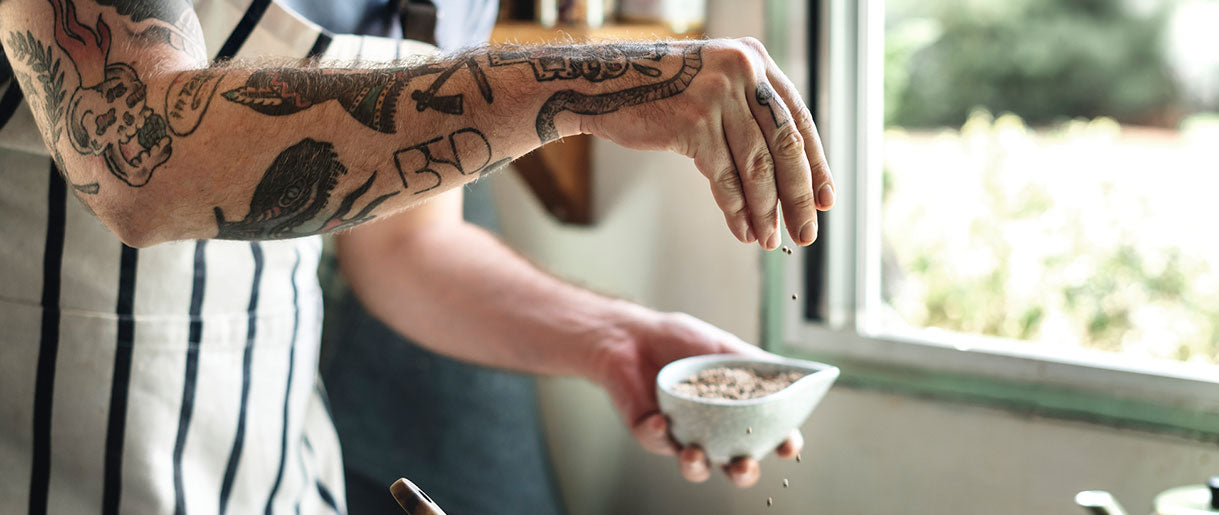
Let Us Know Your Comments